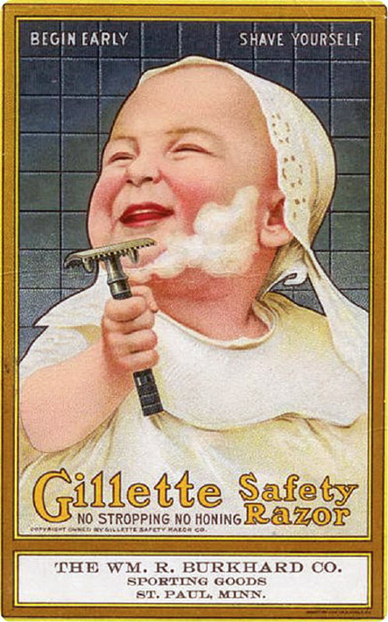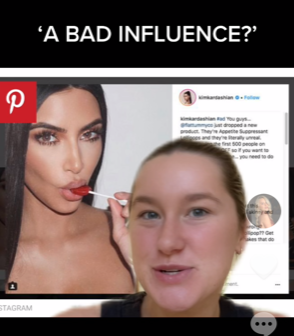
“A Bad Influence?”

Kim Kardashians harmful use of promotional culture
If you are watching this, as a user of Tiktok or any other social media platform you would be well-aware of the negative effects these spaces can have on your self-confidence.
But there isn’t something wrong with you, that’s actually far from the truth, a lot of promotional culture is designed to prey on your vulnerability in order to get you to buy stuff or engage with them.
More specifically, the beauty industry thrives off you thinking you aren’t good enough.
While many people believe themselves to be unaffected by popular media choices, the truth is that even individuals believe themselves to be immune to the effects of advertising are easily influenced. Modern technology has led to marketers seeking new ways to reach target audiences, leading to a rise in influencer promotions.
Traditional modes of marketing sell product, however social media influencers sell a lifestyle. Followers tend to have higher trust in influencers as they are individuals, rather than companies, and audiences feel like they know them. This means audiences are much more likely to engage with an idea or product that an influencer recommends.
As a result of this we see 1 in 4 people in Australia purchase something based off an influencer product promotion.
This becomes especially dangerous when the lifestyle being promoted is harmful.
Take Kim Kardashians 2015 product promotion of an “appetite suppressant lollipop” for example. You’ve probably heard of it, but it’s one in the thousands of damaging promotions of diet-products on the internet.
Kim Kardashians post was sponsored by a company called @flattummyco, who paid Kim to promote their product and provide a discount code.
This product and company insinuate people should supress their appetite to achieve that “flat tummy” look created by modern society as the new beauty standard.
Nearly half of all tiktok users are between the ages of 13-25, the same ages that are most likely to develop an eating disorder or body related issues.
That is why I urge you to unfollow and disengage with influencers who promote these types of messages on their platforms.
A great way to filter out these body-negative posts on TikTok is to long hold on the video and select the “not interested” tab. TikTok will then refine your algorithm and show you less of this toxic content on your for you page.
It is clear that young women and men spend a lot of their days on their screens. If we can’t change this, we have to change the type of content we are absorbing.
If you are looking for body-positive or anti-diet influencers to follow across different social media platforms, here is a list of influencers I believe to be great diminishing unrealistic beauty standards.
